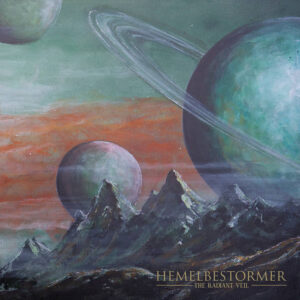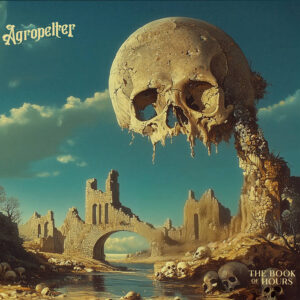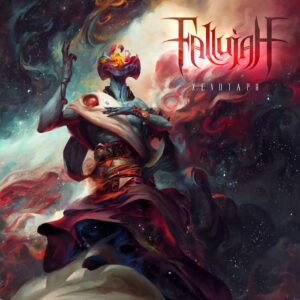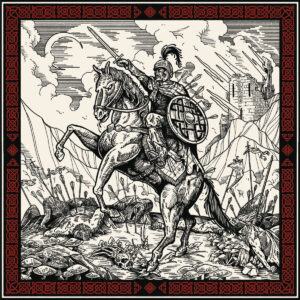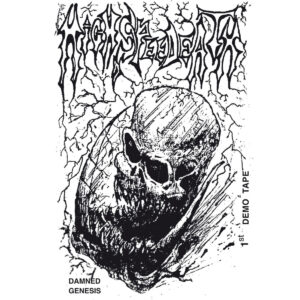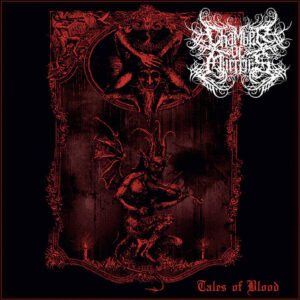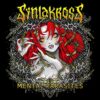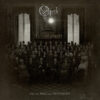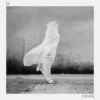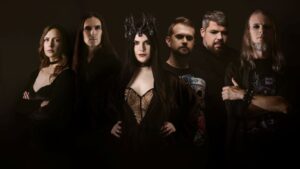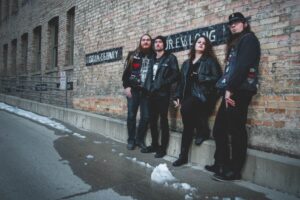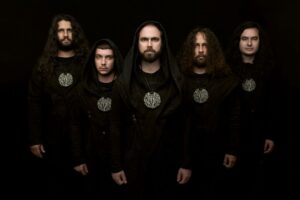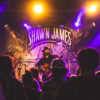Ray Miner, Joe Mills, Jerimy McNeil
DayGlo Mourning
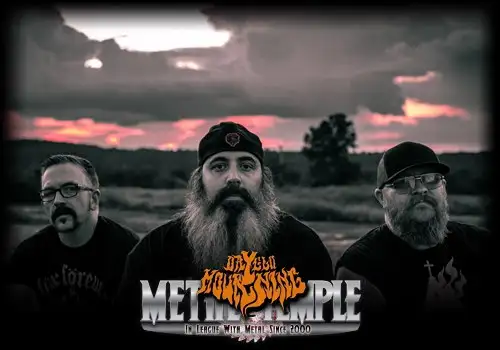
Ray: Sure, I'm Ray Miner. I'm the drummer. I moved down to Atlanta from Chicago in 2006. A lot of the bands I played with were in Chicago, but I did join a band down here call THE ACCELERATORS. I couldn't play for a long time when I raised my kids. When they got older, I decided to jump back into it again, so I hooked up with the guys in THE ACCELERATORS. We did all covers. I think we played two or three, maybe four shows tops. I stayed with them for about four or five years, but I just felt the need to get heavy again, play real heavy stuff. I saw an ad in Craigslist looking for a drummer. I answered it. It was from Matt Rayburn, who was our original guitar player. Back then we could never find a bass player, so he wound up playing bass. It was me and him for a long time. He had a friend named Aaron who sang vocals here and there. Then we picked up Joe, and that was pretty much the beginning of DAYGLO MOURNING.
Joe: I'm on guitars and vocals. I started playing really early. Originally, I played traditional folk and bluegrass music. I'm from West Virginia and that's usually how you learn music there. Eventually I got into the blues really heavily when I got my first electric guitar. I played around and did a little bit of a gigging in high school with some guys. Nothing serious. Then I joined the US Marines, and I didn't really play with anyone at the time. Eventually it was the same thing with me — I got out of the Marines, started a family, and didn't play much for a long time. Several years ago, I started picking it up again once the kids were grown and I had some free time again. So I picked the instrument back up and just played alone for a little bit. Eventually I joined a band with some friends of mine. They're called the SLEEZESTAXXX, you know like from "The Land of the Lost." It's kind of cheeky rock and roll, just fun, nothing serious. I still play with those guys on the side occasionally. We probably do two or three shows a year. But that got me back into playing in a band again and getting ready for shows. It got the juices flowing. Again, like Ray, I wanted to play something heavy. I also saw that Craigslist ad, and that's how I joined up with these guys.
Joe: Yeah, Ray and I started from the beginning, about three years ago. Jerimy joined us a couple of years ago. We've become a much better band since Jerimy came on board.
Jerimy: I'm Jerimy McNeil. I play bass and do some of the vocals. Joe and I had met through a side hustle I have. I build custom speaker cabinets, custom amplifiers, and stuff. I had built a piece for him and we started talking right off. At the time I was in a BLACK SABBATH tribute band. We talked about getting together and jamming some time. It was at the start of DAYGLO MOURNING when Ray, Joe, and Matt had got it going. The timing worked out perfectly because my BLACK SABBATH tribute band was winding down and everyone was going their separate ways. Then Matt had decided that he no longer wanted to be DAYGLO MOURNING. So Joe hits me up and goes, "Hey, man, you want to come do it?" And I'm like, "Well, yeah, I love your guys' music." They had just recorded the three tracks that wound up on the "Rope Enough for Two" split. They invited me out to a practice, and I showed up and they're like, "Wow, you actually know how to play the songs."
Ray: He knew all the songs already.
Joe: Our songs aren't rocket science — I mean we keep it very straightforward, but still he shows up on the first day and we run through our whole catalog.
Jerimy: Well, you know, doing the tribute music, I had spent a few years of my life basically sitting down with the BLACK SABBATH catalog and learning every Geezer Butler bass lick there was. I had my ear trained at that point where I could sit down and really pick stuff apart. Afterwards we played maybe two shows then went back to the studio at Leadbelly to record the tracks. One track wound up on "Doominomican" [2019 compilation album issued on Black Doomba Records], which was "Busla's Curse." Then we also recorded "March of the Doomed," which is it part of the original DAYGLO MOURNING album.
Joe: We wanted to get a set together and start playing some shows, preferably at our favorite venues in and around the city, but we were looking for anything at the time. Everything has happened really fast with this band within the first four months of us getting together and starting. We had written a set and got a show just outside the city within four months. And really our only intent was to write some cool music and play the occasional gig around the city. Personally, I really wanted to be on the 529 stage and The Earl and some of these other places that we all go to every weekend to watch people play. I just always said, "We need to be up there. I want to be up there." Our first recording was pretty raw. It actually was only intended to be demo tracks to give to promoters and booking agents. We were just starting out. Nobody knew who we were. We hadn't played with any local bands, so every time we would reach out to book a show, they'd ask what we sounded like. So we said, "Okay, let's record a few songs." We recorded it all in one day, really quick. Later on, Tommy Stewart asked if we wanted to put them on the album and we were, like, "Shit yeah." Everything just escalated from there.
Ray: Yeah, we put the "Ropes" album out and we played a lot of shows. I want to say we played between 14 and 16 shows that year. So almost every other weekend. During that time, we were still writing and doing stuff.
Joe: A couple of months after "Ropes" came out, Tommy asked us once to write a song for a new compilation album that he did with a bunch of bands throughout the Southeast. We did that and then we really started writing and playing all the time. One of the things that's really important for us as a band is to put on a good live show. The way we sound on our record is the way we want to sound on stage. For me, in particular, it had been so long since I did that. It took practice. Basically, we wanted to grind it out until we got to the point where we could quickly and reliably do a good sound check and know what we needed for ourselves to put on a good show. That's one of the reasons why we took so much time over the last couple of years.
Ray: The first couple of shows were a little sketchy [band laughs], but we just kept at it. My main thing was to get comfortable on stage again.
Joe: It was from a lyric of a song that one of Matt's friends, who he had played with previously, had written. When Matt first threw it out there, we weren't too sure. We kind of muddled it around and then after about a week we started leaning toward it. It does kind of fit what we do.
Ray: And then I found a font that we all liked, and we decided that it worked after all. At first, I was a little hesitant, but now I really love it and embrace it.
Ray: We're mulling around redoing "March of the Doomed" in a different tuning.
Jerimy: When you play songs for shows and you take them out to people and as you play them as musicians, songs kind of grow and mature. There's even one track that's on "Ropes" that we're talking about rerecording because it's evolved into something different now. It's just taken on a whole different kind of vibe.
Ray: "Busla's Curse" was recorded specifically for that compilation album, so I don't know that will rerecord that, but "March of the Doomed" and "Wizard in White" are two that we're mulling around right now about maybe rerecording.
Joe: A big reason for that is when we did the original tracks for "Ropes," we did them super-fast. They were just meant for demo tracks. And that was actually my first time ever in a real recording studio. So I didn't know what to expect or what I was looking for. But then the second time we went back, we recorded "Busla's Curse" and then the other two tracks. That gave me another chance to feel out the studio and work more with the sound engineer and ask more questions. By the time we went back in, we all knew exactly what we wanted, and we were a little bit more balanced. I kind of took more of the reins in terms of how I felt the album needed to sound production-wise. So for me it was just a maturation process.
Ray: And we were definitely more seasoned as players because we played a bunch of shows. And then Jerimy was with us and it was a whole breath of fresh air to the band.
Joe: That's a great point. Having Jerimy really solidified our tracks.
Ray: Also keep in mind Matt was a guitar player who played bass . . . but Jerimy is a drummer that played bass, so he makes me sound a whole lot better! [laughs]
Joe: That's why we're considering rerecording "Wizard in White," because with Jerimy playing that song with us now, it takes it to a whole new level.
Joe: It's not a concept album, but I guess historically the songs that I write either fall onto the occult, fantasy, or anti-religion category.
Ray: And then adding to that, Jerimy came in with the space theme.
Jerimy: Yeah, there were tracks on there like "Bloodghast," which is actually a fantasy piece. Joe came up with those lyrics based off Magic the Gathering (MTG) characters. The album has all these elements of classic metal albums and fantasy. And then there was this theme of like if you could illustrate a bad day from across a range of different people, that's pretty much what the album turned into. I came up with the whole science fiction thing of this astronaut's bad day in space. So there's a little bit of everything in the album.
Joe: If you dig into "Bloodghast" it's about a vampire and how hard his existence is. How he's in the tomb for thousands of years. Then he comes out and he goes on these rampages because he's hungry. He's villainized for it, but he can't do anything about it — that's what he is.
Joe: Some of our other songs like "Dark Ritual" are inspired by MTG as well as some lines here and there in our lyrics.
Jerimy: I grew up being a fan of science fiction and horror from the 70s and 80s and even further back. "2001: A Space Odyssey" and films like those inspired my songwriting. You know, sometimes I have an idea that I write about but what really matters is what it means to the person who's listening to it.
Joe: The artist is Mont Doom out of Italy. He based the artwork on two songs. Obviously "Dead Star" but also "Witch's Ladder," which is how the girls got on the cover. They're actually casting a spell. If you look at her hand, she's got a little flame thing going on. They're casting a spell and creating some of the chaos for the space traveler.
Ray: When we saw the girls, we were like, yes, he's got it.
Joe: We were we were looking for artists. Jerimy found him on Instagram and sent me the link. As soon as I saw his art, I knew he was our guy. He was exactly what we were looking for. He did the artwork for a Doom metal band that we know out of Texas called MONTE LUNA. With all that combined, we knew he was the guy.
Jerimy: His artwork reminds me of the animated film, "Heavy Metal" from back in the 80's. It was so iconic for all of us, because even the soundtrack and the bands from that era were awesome.
Jerimy: Maybe the cat thing [band begins to laugh].
Joe: Or maybe the eye!
Jerimy: Yeah, the eye is pretty awesome!
Ray: The song has been around for a while. Joe challenged me with the beginning. He said, "We got all these songs that start with the guitar, we need something that starts with drums." So I came up with the opening and for the longest time I kept telling myself I had to do something better. But as it progressed, it just stuck. Me and Jerimy lock in on that part you're talking about midway through and then Joe launches into that solo.
But that song has been around probably for about two and a half years. We were just kicking it around and finally we got it worked out and put together. But that's how the drum part came about. Joe challenged me.
Joe: The breakdown really never solidified until Jerimy came on. As soon as Jerimy came in and we did it a few times, he said, "Let me work on it and I'll come back next week." He came
back the following week with that great bass line, and I was like, "Okay, now I can write a lead over this."
Jerimy: If I could just sum it up, it's everything that makes this band work. The three of us are friends, and we respect each other as musicians greatly. That song is kind of a testament to the way this band works. We love music that has space in it, and you can hear the dynamics of every piece. I mean, sure you can take something, and you can put a lot of notes and pieces in it, but I feel like sometimes you lose that dynamic part. There's people who say they can hear elements of like THE MELVINS and all this more progressive type stuff in there. And, yeah, it's kind of there, but the truth is we push each other as musicians. Like Ray was talking about, we're trying to inspire each other to push to the next point of what we're going to do with the song. Even on that track, it's in an odd time signature. It was kind of a push to make sure all the timing lined up, because it's like a team of horses — if you turn it loose, it'll get away from you.
Ray: Being a three-piece band gives you that space that you're talking about. Everyone gets an opportunity to shine. You don't have to worry about two guitars tripping over each other. I love being a three-piece more than anything; it's so much more freedom.
Joe: Lyrically, that's a very simple song, but we were messing around with the riff and Ray came up with the idea of saying something about a witch's coven. So that instantly made my mind start going to a witch theme. In the intro and outro, you can hear chanting. Those chants are actual curses provided by a witch I know. There are two of them. One of them is called the "Witch's Ladder." Then I came up with the rest of the lyrics.
Joe: You hear that Southern influence in almost every single band from around here. Between those guys you mentioned and DOWN from Louisiana and CORROSION OF CONFORMITY from North Carolina. I mean, there's a Southern groove that runs through virtually every band in the metal scene down here.
Jerimy: Joe totally nailed it. As a musician and writer, I've tried my whole life to beat this whole Southern Blues thing. It's hard to break your mind out of that mold because you grew up in that region hearing all these influences of Southern Rock and Blues and classic country and all these things. It influences you a bunch.
Joe: I was probably a blues guy before I became like a real metal guy. So everything that I touch somehow comes off bluesy. Every solo I do, no matter how hard I try, ends up sounding bluesy because I can't help from bending a note, you know, and it's always a slow bend. It's just hard to break away from.
Joe: I think people are generally more open to interact with. They may be assholes and you may not like them, but everybody pretty much down here will be willing to talk to you. It's very inviting. And the metal scene is even more welcoming than the South is, to be honest. I don't know any bands that I don't like personally, even if I don't care for their music, I like them as people. Everybody is just so easy to get along with. They all want to talk to each other, and everybody's interested in each other's activities and music. It's just a real friendly environment.
Ray: I'll second that, and I should probably be the expert on this one since I'm from Chicago. I've been down here for about 14 years now, and I'll say the people down here are way more friendly and just way more inviting. Completely laid back, and I love it. My wife the other night asked me if I regret moving down here and I said, "Hell no, I don't regret moving down here. I love it here.
Ray: I don't even own a snow shovel! /[band laughs].
Jerimy: All I could think about was my friend Donny. He lives in Connecticut. He's like, yeah, we got 14 inches of snow. And I was like, "I don't even know what a snow blower looks like, much less how to even use one." I traveled with work for years all over the United States and Canada, but I've never really operated a snow blower and he goes, "But there's an art to it and the art is you don't want to do it."
Ray: A lot of them! You're wearing a shirt from one of them [KHEMMIS]. I got to see them two years ago when they came around. But other bands, you know, LED ZEPPELIN, obviously, BLACK SABBATH, RUSH.
Joe: I think more recent bands that are definitely influencing us — not only what we have done, but where we are going — are CONAN from the U.K., SLEEP, ELECTRIC WIZARD. I'm a huge WIZARD fan. And then there's a bunch of lesser-known bands like MONTE LUNA and DESTROYER OF LIGHT out of Texas. All those bands are so good.
Ray: ORDER OF THE OWL
Joe: Yeah, ORDER OF THE OWL and STONEMAN, both out of Atlanta. All those bands keep us energized and wanting to keep pushing.
Ray: Also, it's like every time they come out with something, then you gotta come out with something and it just keeps going up and up and up and up and up and building.
Jerimy: I was talking to Tommy Stewart about this one night at a show. The only thing I can compare it to is the Thrash metal scene from the 80's and how it moved and became its own living, breathing thing. And he said, "Yeah, it's like that but it's a lot slower because, you know, it's Doom."
Joe: It provides the capacity to basically reach the entire planet. But there's so much noise there, it's hard to get noticed. There's so many bands that you can search for. I mean, how do you find this one? It puts you potentially in reach with a lot of people, but cutting through that noise is really difficult, especially without having labels promoting bands the way they used to. The marketing is just not there anymore.
Joe: We're doing this for fun. We're older guys. It's totally about the love of the music and the camaraderie and everything else. But we all have friends who are working musicians and, you know, amazing bands, and they come off tour and they all have to get jobs until they go back out.
Ray: It's really frustrating to see them work so hard and tour five, six weeks in a row and then come home and still not have money.
Joe: I think that's attributable to the Internet and file sharing.
Jerimy: I have another angle to add on that. I think about growing up . . . about the time when you used to go into a record store, right? The Internet takes the mystique out of that. You used to walk into a record store, and you'd pick up a physical copy of an LP or a cassette or CD. And you've never heard this band before in your life, so you look at the album and you go, "Man, this cover looks just awesome. I bet this band's really good." So you take a chance, buy the music, and take it home. It was a roll of the dice. Is this thing going to suck or is it going to be great?
Ray: It's definitely a double-edged sword for those reasons, but we've also gained so many fans overseas.
Joe: I have a couple of Nina Simone and Miles Davis records. I love old jazz, so that those are probably the ones for me.
Jerimy: If you were to browse through my record collection, it would either be like some old Johnny Cash, Waylon Jennings, or even Frank Zappa. I've heard a lot of talk about Zappa lately with the film coming out. And it's like, "What did he play?" And it's not what he played, it's what he did. Was it jazz? Was it rock? It was just his thing. It breaks all barriers to music. And then there's a T-REX album in my record collection. T-REX's music was fun. I always call it roller-skating music, but it's fun to listen to. For me personally, I kind of went back to that old classic country thing because there was a period where I felt like metal music around the late 90s, early 2000s had got kind of stagnant. I was hearing all these bands coming out and none of these people were inspiring me. There was nothing striking me that I hadn't heard before. It just didn't inspire me to do anything. So I started like reaching out, looking at different things and finding other sources of music.
Joe: Ray's a straight up metalhead and he's always been one, so I don't know if he has anything.
Ray: I have some BEATLES records. I would say maybe "Sgt. Pepper's" might surprise someone. It was one of my favorite records. I got "Yellow Brick Road" by Elton John. Other than that, it's pretty much straight metal.
Joe: We had plans to do a Southwest tour to Texas in 2020 and maybe one to Wisconsin, but all that obviously was canceled. We've traveled out of state to play shows, but not like a tour . . . more like a weekend road trip. But yeah, we were just getting to a point where Tommy Stewart had convinced us to at least take a couple of weeks and go out to Texas and back or something like that. We all have regular jobs, so we're not going to be like a touring band, but we do want to do a bit of traveling and do a couple of quick runs out to the west and back or up to the northeast.
Ray: The very last show that we played before it all went to hell was one of the best shows that we ever played. It was to a full house. We played with TOKE, ORDER OF THE OWL, and a band called HOT RAM. It was a great show. And literally the next week is when all this shit hit, and they shut everything down. So we went out with a bang.
Jerimy: And speaking of HOT RAM, they're another band from our local scene. These guys are great. They do like a Desert Rock thing. It is f*cking amazing.
Ray: Joe [entire band laughs]. And Jerimy would be second.
Jerimy: Yeah, it segues back to a previous question. We're kind of "second-rounders." I was in bands in the 90s, but I had to get a grown-up job. It was either be homeless or get a real job. And so we all kind of took a break. By the time that I got back into it, I was a machine. I've been programmed to wake up at 5:30 a.m. every day, regardless of what I do. If I had one and a half hours of sleep, I still wake up at 5:30 because I'm programmed by now. But the thing is, even being programed, sometimes you wake up and you say, "F*ck this, I'm going back to sleep!"
Ray: That would probably be me. I just can't party like I used to. It takes me two or three days to recover.
Joe: There's some venues outside of the city that are having shows. You know, these rednecks down here, they don't care about government recommendations. But the more serious venues in the city, they're obviously still shut down. Once it opens, I think there's going to be a good surge of people getting out on tour. There's been a lot of good album releases that people are going to want to start playing on. Everybody's chomping at the bit to do it. I think it's just going to be a nice, good rush of renewed enthusiasm.
Ray: Yeah, people need to get out. I went to one of those shows a couple of weeks ago because I was like, "I gotta get out of the house man!" I put on a mask, went to the show, and there were quite a few people there. Everybody was having a good time.
Jerimy: As bad as this has been, I think every now and then in every scene and everything you need a rebirth. You need a reset button to remind people that getting to go out to see bands and see shows is a privilege. It's a treat. And so they're sitting there, you know, it's Friday night and they say, "Do I stay home and watch this shit on TV or do I go out and see my friends and bands I like?" I think it's going to be like a reset button.
Joe: We're going to release another single off the album before February. We're considering releasing it with another video. And then really, we've been getting ready to start playing live again. I broke my wrist and had surgery this year, so I'm just now getting back to where I can really play again the way I need to. We kind of dodged a bullet because we would have had to cancel a lot of dates. Also, we've already started working on concepts and ideas and feeling around for a sound for the next album.
Joe: The next album may be significantly different than this one. We're talking about down-tuning even further to F.
And when you go that low, you can't really play the same way. Like the songs that we have now we couldn't play them in F and have them sound right. So if we do that, it's going to be a big change and it's probably going to be a little bit more aggressive, maybe a little darker.
Jerimy: We're even kicking around ideas of changing our approach to recording it. It's kind of like, we went this direction now let's see where it goes if we tweak some things and change direction just a little bit.
Jerimy: Stay f*cking heavy.
Joe: We really appreciate everything that's happened over the last three years. I definitely want to give some appreciation to Tommy Stewart and Black Doomba Records. Without him, obviously, none of this would have happened. And to guys like yourself and the whole Metal Temple crew who are pushing the music forward, finding people like us and introducing us to a new audience.
Jerimy: We look at different guys in our local scene. These guys are doing classic Thrash, these guys are doing Doom, these guys are doing this and that. There's always something for everybody. Always pay attention and keep your ears open for the next band that's going to pop up and be something you really like and really love.
Joe: I think this going to end by next summer and we'll all be back in the venues.
Jerimy: Until then, stay heavy!
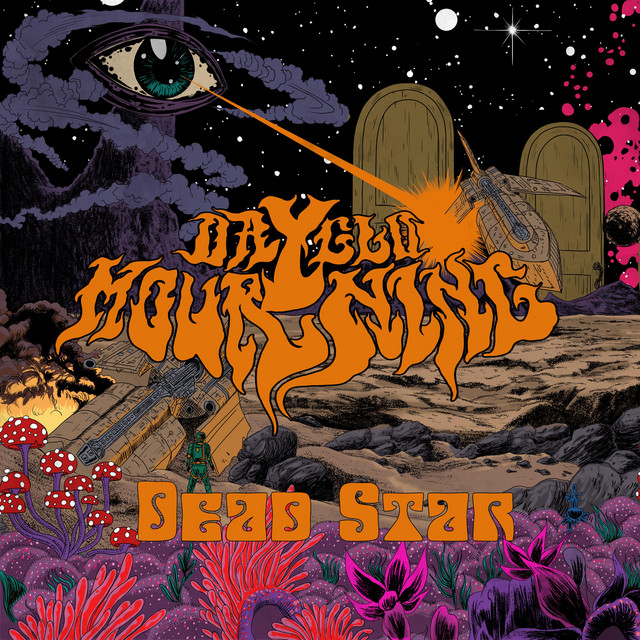
More results...
